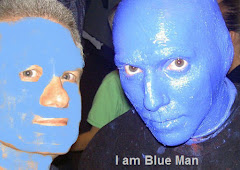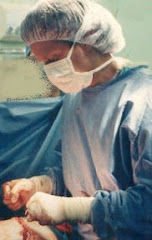There are so many things wrong with graduate medical education from selection to the educational process itself. Working with newly graduated residency trained physicians and surgeons for many years and having been involved in the process, I see how completely dangerous the current process is. But one thing stands out as a real problem with the process - Feedback.
Clinician educators are awful at feedback to students and residents eager to learn. Diatribes of instruction and learning are lost in the incomprehensible feedback that many receive in inappropriate ways and places. It's not a skill we are born with, but learning how to provide quality feedback to students and residents is paramount to creating a learning environment that doesn't have a counterproductive effect on the learner.
1. Feedback should be private. Feedback in the midst of working events in front of the health care team of others is so damaging to young minds eager to learn. The damage, the breaking down, can easily turn the eager into the frustrated.
2. Feedback should be timely. Like spanking a dog 3 weeks after he/she has pooped on the carpet, the timing of feedback should be contemporary to a behavior, skill, attitude or belief. Instruction designers suggest within 24 hours but depending on the situation, may be sooner.
3. The learner should know that feedback is being provided. Sounds simple but feedback should be prefaced with that introduction. "I wanted to give you feedback on [such and such]".
4. The learner should be able to articulate exactly what he or she need to work on to improve a skill, attitude or belief when it is completed. Those providing feedback should give the learner time during the private feedback session to re-state the issue and formulate a learning plan for the future; the "what now".
5. Providers of feedback should be open to learning how to provide feedback from learners. Formal pathways for providing learner reaction and comments to feedback is necessary to continually improve the process. With "student" feedback, instructors need to continually ask themselves and seek information about how well they accomplish feedback and what they need to improve. Instructors need continuous self assessment as they learn to provide feedback and teach: What should I keep doing? What should I start doing? What should I stop doing?
6. Feedback should be a conversation not a mini-lecture series. Feedback in post doctoral graduate education should be a two way, professional discussion that helps to reinforce and correct. In that, the student needs to understand and be able to speak about his/her perception of the issue and process to change or learn. The conversation should include a discussion about how to move forward and what the student needs to do differently in the future.
7. Feedback should be based on concrete examples and date driven/specific actions otherwise it becomes an attack on the person (which should NEVER be the intention of feedback). Feedback is best received and most effective when it involves changeable behavior that can be achieved converting feedback from the instructor into behaviors in the learner. This must be based on something the learner can understand based on concrete examples and situations in a timely manner (see 2 above).
8. Feedback should conclude with an action plan
with a conclusive agreement between learner and instructor on a plan for improvement. That plan (and agreement) should be specific to who, what where when and (most importantly) how. Consequences should be completely understood (both natural and imposed consequences). Learners need to confirm that understanding and the plan.
I shutter to think how many bright, young, positive minds have been squashed violently by feedback given wrongly, inappropriately and poorly in wrong ways and with wrong means. Graduate medical education needs to change in so, so many areas, but improving feedback from existing clinical and skill education based faculty can start now.
Yet most educators that read this or similar text will ignore it's message and continue to believe that their "style" is God-given, natural and always right. From a learner, get a clue. In many cases, nothing could be further from the truth. Providing feedback is a learned, developed skill.
Blogging the trek of an non-traditional, older dude through a traditional physician educational process in a non-traditional world. Some people go out and buy a muscle car for their midlife crisis (I miss my '70 Camaro), but I decided to go to medical school. It is in God's hands and it's a RUSH.
Being a 50 something medical-school graduate now isn't as "nuts" as everyone seems to think. Just getting prepared for the rest of my life
"Life isn't about finding yourself; It's about creating yourself" - George Bernard Shaw
"Life isn't about finding yourself; It's about creating yourself" - George Bernard Shaw

Just another Blue Man...

"One act of pure love in saving life is greater than spending the whole of one’s time in religious offerings to the gods." -Dhammapada


"Life is either a daring adventure, or nothing at all." - Helen Keller
"Behold the turtle. He makes progress only when he sticks his neck out." - James Bryant Conant (1893-1978), Chemist and educator
